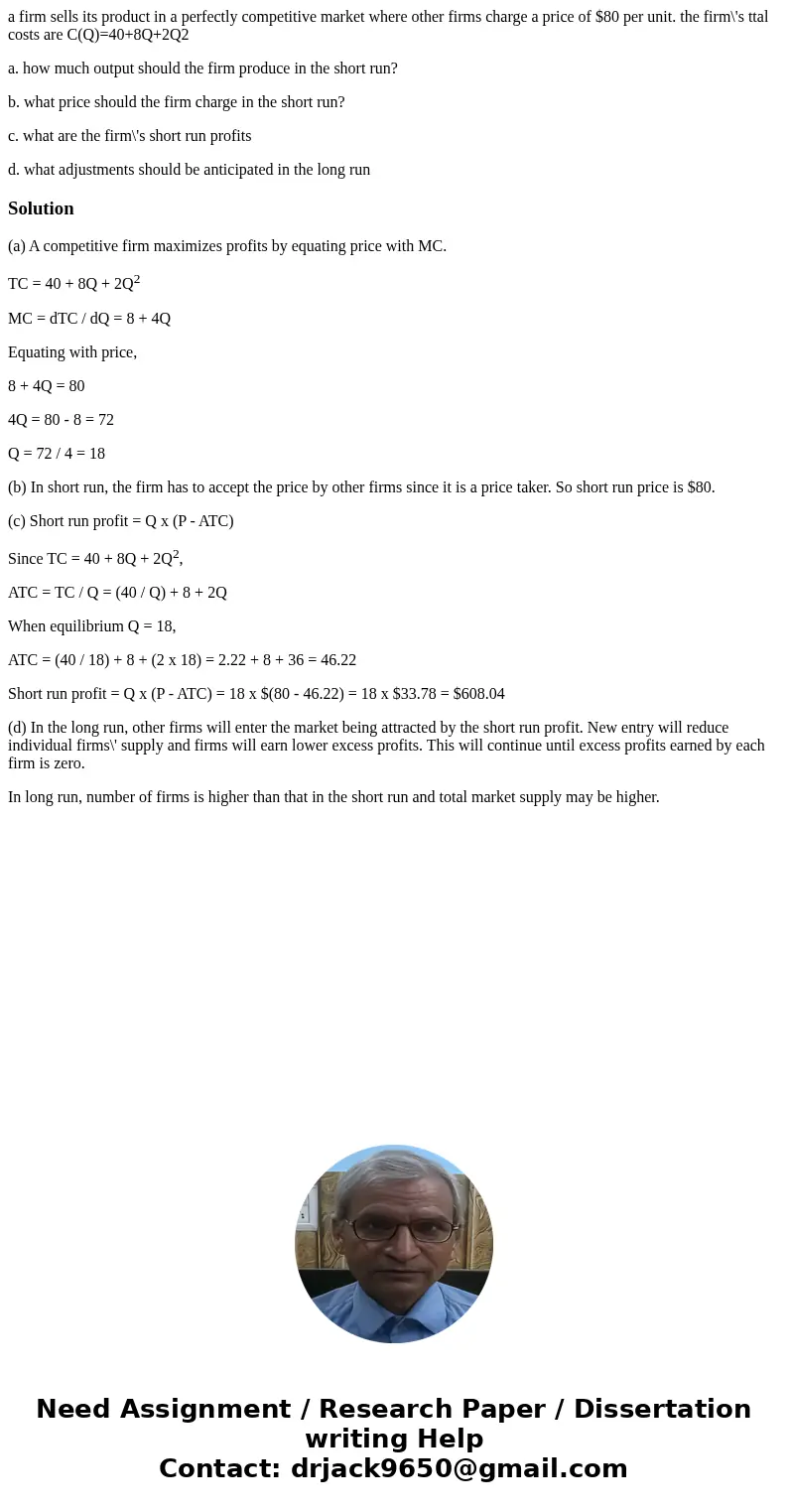a firm sells its product in a perfectly competitive market w
a firm sells its product in a perfectly competitive market where other firms charge a price of $80 per unit. the firm\'s ttal costs are C(Q)=40+8Q+2Q2
a. how much output should the firm produce in the short run?
b. what price should the firm charge in the short run?
c. what are the firm\'s short run profits
d. what adjustments should be anticipated in the long run
Solution
(a) A competitive firm maximizes profits by equating price with MC.
TC = 40 + 8Q + 2Q2
MC = dTC / dQ = 8 + 4Q
Equating with price,
8 + 4Q = 80
4Q = 80 - 8 = 72
Q = 72 / 4 = 18
(b) In short run, the firm has to accept the price by other firms since it is a price taker. So short run price is $80.
(c) Short run profit = Q x (P - ATC)
Since TC = 40 + 8Q + 2Q2,
ATC = TC / Q = (40 / Q) + 8 + 2Q
When equilibrium Q = 18,
ATC = (40 / 18) + 8 + (2 x 18) = 2.22 + 8 + 36 = 46.22
Short run profit = Q x (P - ATC) = 18 x $(80 - 46.22) = 18 x $33.78 = $608.04
(d) In the long run, other firms will enter the market being attracted by the short run profit. New entry will reduce individual firms\' supply and firms will earn lower excess profits. This will continue until excess profits earned by each firm is zero.
In long run, number of firms is higher than that in the short run and total market supply may be higher.

 Homework Sourse
Homework Sourse